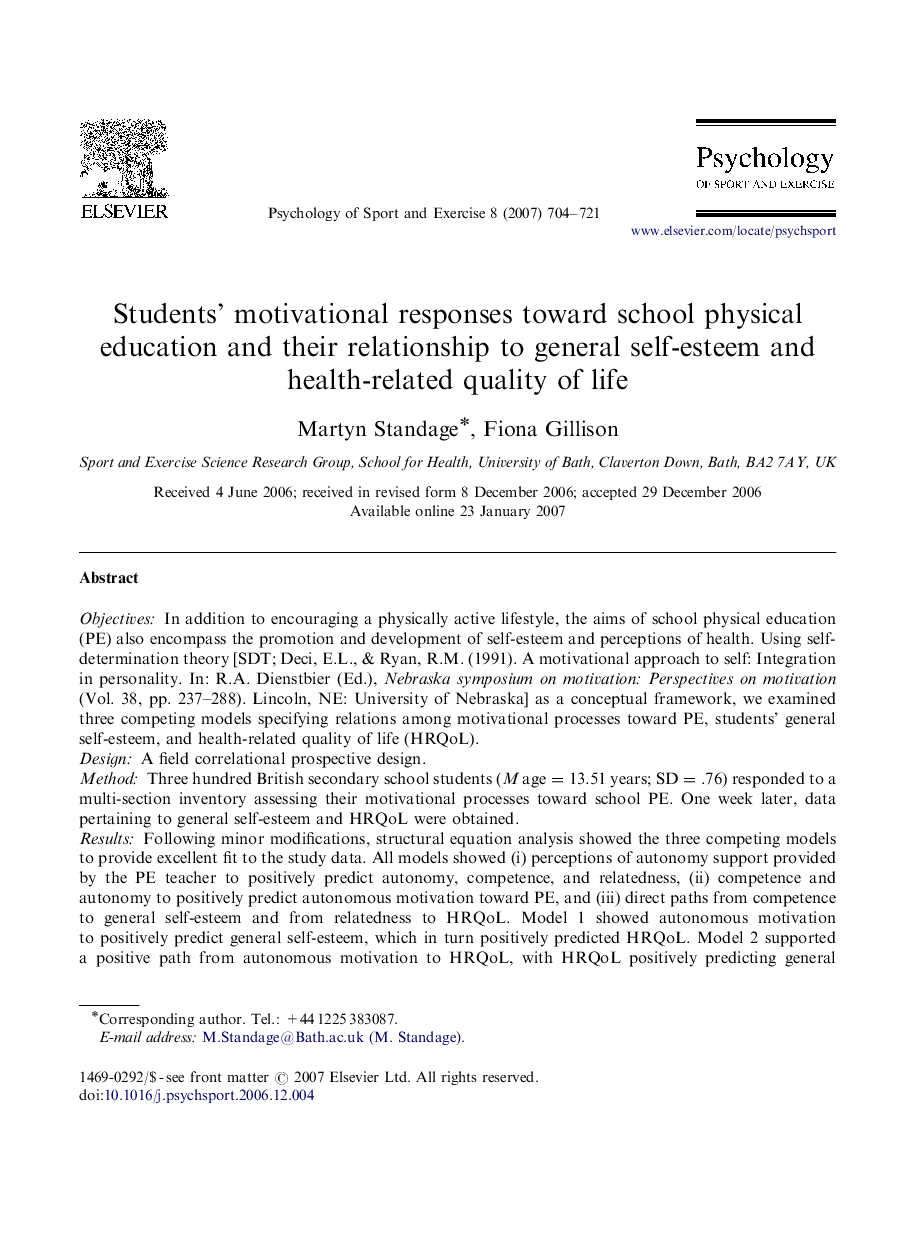| کد مقاله | کد نشریه | سال انتشار | مقاله انگلیسی | نسخه تمام متن |
|---|---|---|---|---|
| 894882 | 1472157 | 2007 | 18 صفحه PDF | دانلود رایگان |

ObjectivesIn addition to encouraging a physically active lifestyle, the aims of school physical education (PE) also encompass the promotion and development of self-esteem and perceptions of health. Using self-determination theory [SDT; Deci, E.L., & Ryan, R.M. (1991). A motivational approach to self: Integration in personality. In: R.A. Dienstbier (Ed.), Nebraska symposium on motivation: Perspectives on motivation (Vol. 38, pp. 237–288). Lincoln, NE: University of Nebraska] as a conceptual framework, we examined three competing models specifying relations among motivational processes toward PE, students’ general self-esteem, and health-related quality of life (HRQoL).DesignA field correlational prospective design.MethodThree hundred British secondary school students (M age=13.51 years; SD=.76) responded to a multi-section inventory assessing their motivational processes toward school PE. One week later, data pertaining to general self-esteem and HRQoL were obtained.ResultsFollowing minor modifications, structural equation analysis showed the three competing models to provide excellent fit to the study data. All models showed (i) perceptions of autonomy support provided by the PE teacher to positively predict autonomy, competence, and relatedness, (ii) competence and autonomy to positively predict autonomous motivation toward PE, and (iii) direct paths from competence to general self-esteem and from relatedness to HRQoL. Model 1 showed autonomous motivation to positively predict general self-esteem, which in turn positively predicted HRQoL. Model 2 supported a positive path from autonomous motivation to HRQoL, with HRQoL positively predicting general self-esteem. Model 3 supported general self-esteem and HRQoL to be distinct, yet related, dependent variables that were positively predicted by autonomous motivation toward PE.ConclusionThese findings call for future work to examine the causal associations among motivational processes, self-esteem, and HRQoL. The theoretical contributions of SDT to such work are discussed.
Journal: Psychology of Sport and Exercise - Volume 8, Issue 5, September 2007, Pages 704–721